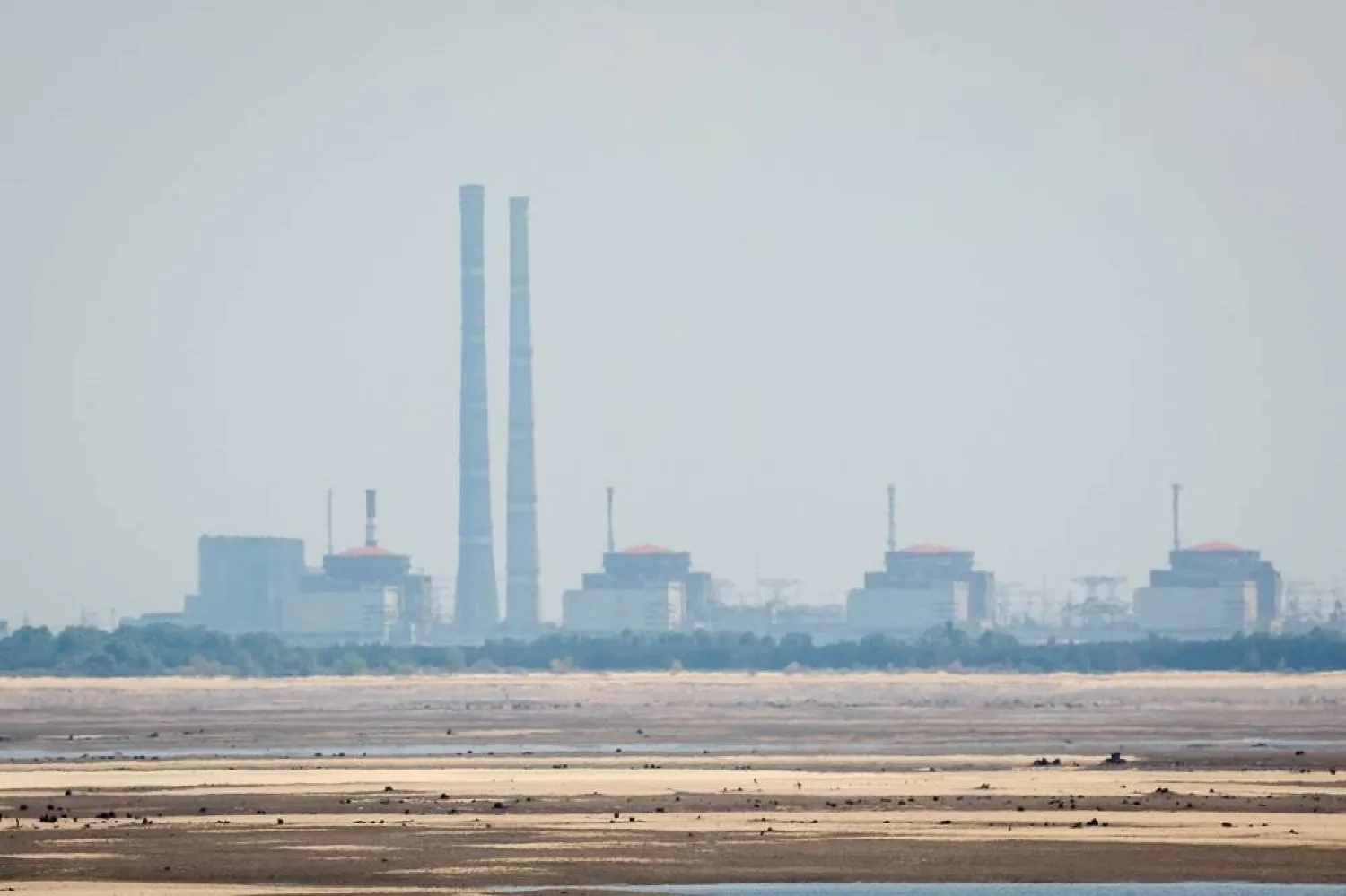Ukraine wants other countries to heed its warning that Russia may be planning to attack an occupied nuclear power plant to cause a radiation disaster, President Volodymyr Zelenskyy said.
Members of his government briefed international representatives on the possible threat to the Zaporizhzhia Nuclear Power Plant. Zelenskyy said he expected other nations to “give appropriate signals and exert pressure” on Moscow.
“Our principle is simple: The world must know what the occupier is preparing. Everyone who knows must act,” Zelenskyy said late Thursday. “The world has enough power to prevent any radiation incidents, let alone a radiation catastrophe.”
The potential for a life-threatening release of radiation has been a concern since Russian troops invaded Ukraine last year and seized the plant, which is Europe’s largest nuclear power station. The head of the UN's atomic energy agency spent months unsuccessfully trying to negotiate for a safety perimeter to protect the facility as nearby areas came under repeated shelling.
The International Atomic Energy Agency noted Thursday that “the military situation has become increasingly tense” while a Ukrainian counteroffensive that got underway this month unfolds in Zaporizhzhia province, where the namesake plant is located, and in an adjacent part of Donetsk province.
Although the last of the plant's six reactors was shut down last fall to reduce the risk of a meltdown, experts have warned that one could still happen if the cooling system that keeps the reactor core and spent nuclear fuel from overheating loses power.
During months of fighting, Russia and Ukraine have traded blame over which side was increasing the possibility of that happening. On Friday, IAEA Director General Rafael Grossi met with the head of Russian state nuclear corporation Rosatom in the Kaliningrad exclave of Russia to discuss the conditions at the plant.
Rosatom director Alexey Likachev and other officials “emphasized that they now expect specific steps” from the UN agency to prevent Ukrainian attacks on the plant and its adjacent territory, said a statement from the Russian corporation, whose divisions build and operate nuclear power plants.
The governor of Zaporizhzhia, Yuriy Malashko, reported Friday that Russian shelling in the southern province killed two people in the past day. An attack that hit a transportation company in Kherson, the capital of Kherson province, killed three others on Friday, governor Oleksandr Prokudin said.
Russia also fired 13 cruise missiles overnight at a military airfield in the western Khmelnytskyi province but Ukrainian air defenses intercepted them all, according to the air force. The attack came after Russian-appointed officials said that Ukrainian-fired missiles damaged a bridge that serves as key supply link to occupied areas of southern Ukraine.
Russia's air-launched Kh-101 and Kh-555 missiles were sent from the Caspian Sea, the air force said. It did not identify the targeted airfield, but Ukraine has an air base near the Khmelnytskyi region's town of Starokostiantyniv.
The base houses fighter jets and bombers, and five years ago it hosted a training exercise with air force personnel from the United States, Ukraine and seven European countries. It has come under Russian attack previously, including within the last month.
Ukrainian Deputy Defense Minister Hanna Maliar said on Friday that Russia has beefed up its defense forces in southern Ukraine in response to the early counteroffensive but also intensified its efforts to take more ground in the east. Asked if the Ukrainian military's initial attacks set the stage for a larger assault, Maliar confirmed that was the plan.
“We are yet to see the main events, and the main blow," she said on Ukrainian television. “And indeed, a part of reserves will be used later.”
Ukrainian forces so far have made only incremental gains in Zaporizhzhia province, one of four regions of the country that Russian President Vladimir Putin illegally annexed last year. Putin has pledged to defend the regions as Russian territory.
Zelenskyy has said that Ukraine is fighting to force Russian troops out of those regions and Crimea, which Moscow is using as a staging and supply route in the 16-month-old war. If the counteroffensive now in its early stages breaks the Russian defenses in the south, Ukrainian forces could attempt to reach a pair of occupied port cities on the Sea of Azoz and break Russia’s land bridge to Crimea.
The Ukrainian leader's nighttime remarks Thursday on a possible attack on the nuclear power plant carried a tone of frustration with “countries that are pretending to be neutral even now” in the war. He accused “anyone who turns a blind eye to Russia’s occupation of such a facility” of enabling Moscow to commit an act of evil and terror.
“Obviously, radiation does not ask who is neutral and can reach anyone in the world. Accordingly, anyone in the world can help now, and it is quite clear what to do,” Zelenskyy said.
On Friday, Russia claimed it was the target of “an information and propaganda campaign to discredit the country in the international arena.” Russia’s Federal Security Service, the FSB, said five people were arrested for trying to smuggle a kilogram of the radioactive isotope Cesium-137 out of the country under the direction of a Ukrainian citizen.
The FSB said the material was to be used for “organizing staged scenes of the use of weapons of mass destruction.” Cesium-137 is often mentioned as of potential use in making a ”dirty bomb" that could contaminate a wide area.









